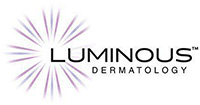Summertime fashions have certainly evolved over the past century. From the high collars and floor-sweeping skirts of the Gibson Girl age to the knee-grazing, shoulder-baring styles of the Flapper era, fashion has continuously transformed. We’ve seen Christian Dior’s post-war, softened “New Look,” the fluid, Disco-inspired trends of the 1970s, and more. Yet, the apparel industry has never created anything quite as fashionable and functional as today’s sun-blocking textile technologies.
Clothing is the most effective form of protection against the sun’s damaging ultraviolet (UV) rays. Driven by today’s health-conscious consumers, clothing manufacturers are increasingly focusing on new textile technologies that offer broad-spectrum sun protection. These innovative fabrics not only block harmful UV rays but also reflect infrared rays, wick sweat away from the skin, and cool the body.
Stay Safe in the Sun: Choosing the Right Summer Wardrobe
Summer activities like trips to the beach, pool, golf course, park, or favorite fishing spot often mean extended time in the sun. This is especially true during school breaks and holidays like Memorial Day, Independence Day, and Labor Day. While wind and water can create a deceptively cool sensation, remember that UV rays are always present, posing a constant risk to your health.
To better protect yourself and your family, select your summer wardrobe from brands that have earned the Skin Cancer Foundation’s Seal of Recommendation. Look for garments labeled with UPF (Ultraviolet Protection Factor) ratings, which indicate how well a fabric filters out UV rays. The higher the UPF, the better the protection. For example, a light cotton T-shirt with a UPF of 5 allows one-fifth of the sun’s UV rays to penetrate the fabric, while a long-sleeved denim shirt with a UPF of 1,700 offers near-total protection. Aim for a UPF of 30 or higher for optimal safety.
Sun Protection on a Budget: Use What You Have
If a new summer wardrobe isn’t in your budget, you might already have protective clothing in your closet. Fabrics like polyester, nylon, wool, silk, and denim are effective at blocking UV rays. However, avoid loosely woven, bleached cottons and crepe, as these offer little to no protection from the sun.
Make Smart Fashion Choices to Protect Your Skin
Don’t let poor fashion choices put you at risk for accelerated aging and potential skin cancer. Healthy, smooth, vibrant skin is a timeless fashion statement. Opt for sun-smart styles and always apply a high SPF broad-spectrum sunblock when you go outside.
Conclusion: Cover Up for the Best Defense Remember, covering up is the best line of defense against the sun’s harmful rays. By making informed choices about your summer wardrobe and skin care, you can enjoy the sun safely and stylishly.


